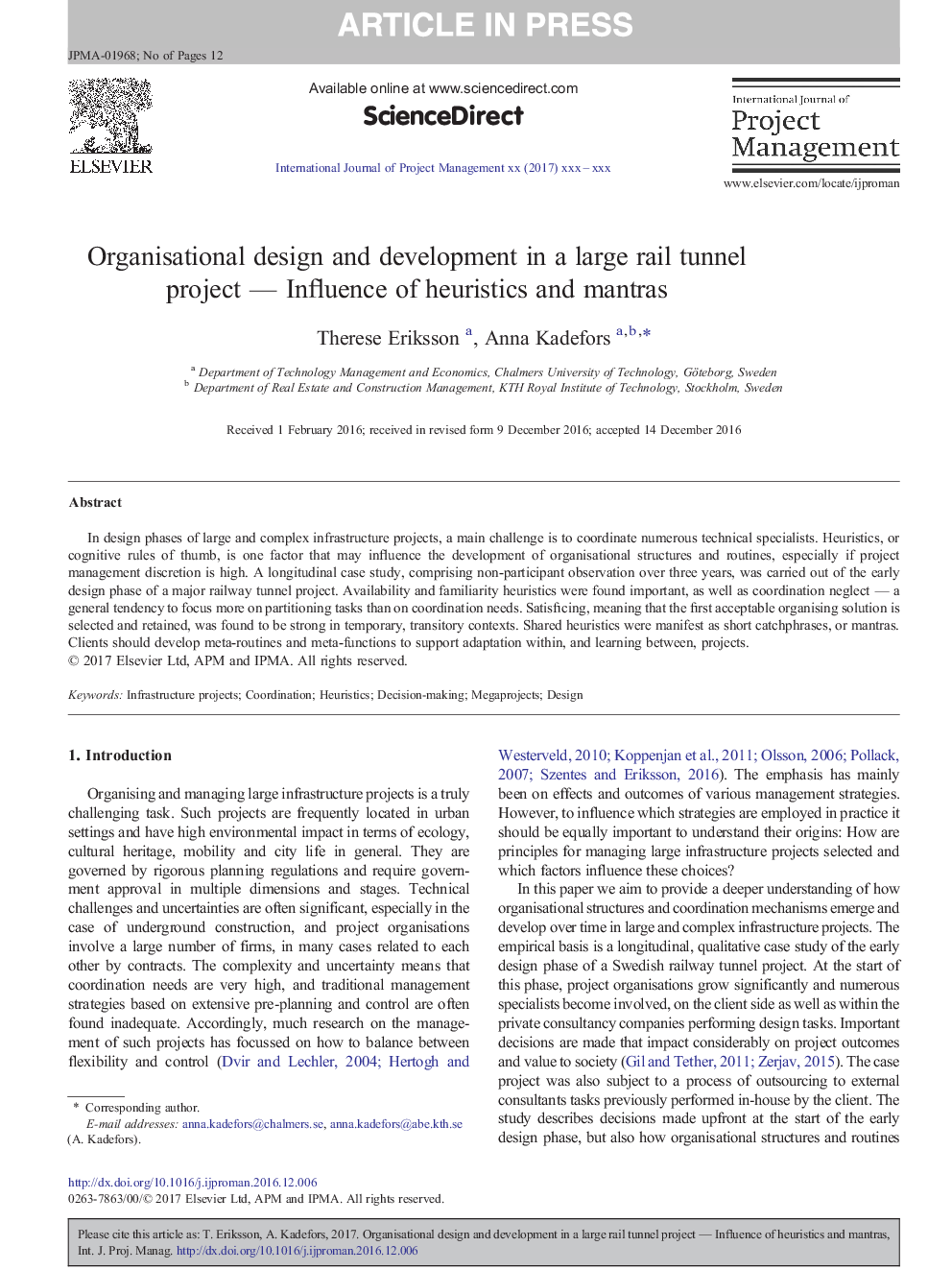| Article ID | Journal | Published Year | Pages | File Type |
|---|---|---|---|---|
| 4922195 | International Journal of Project Management | 2017 | 12 Pages |
Abstract
In design phases of large and complex infrastructure projects, a main challenge is to coordinate numerous technical specialists. Heuristics, or cognitive rules of thumb, is one factor that may influence the development of organisational structures and routines, especially if project management discretion is high. A longitudinal case study, comprising non-participant observation over three years, was carried out of the early design phase of a major railway tunnel project. Availability and familiarity heuristics were found important, as well as coordination neglect - a general tendency to focus more on partitioning tasks than on coordination needs. Satisficing, meaning that the first acceptable organising solution is selected and retained, was found to be strong in temporary, transitory contexts. Shared heuristics were manifest as short catchphrases, or mantras. Clients should develop meta-routines and meta-functions to support adaptation within, and learning between, projects.
Related Topics
Physical Sciences and Engineering
Engineering
Civil and Structural Engineering
Authors
Therese Eriksson, Anna Kadefors,
